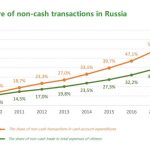
From GP appointments to railway tickets to cashless parking, key services in the UK are being delivered digitally. For many, the convenience is a tangible benefit. But there are appreciable downsides for the millions of people who find it difficult to carry out basic day-to-day functions in a world that assumes everyone is comfortable online. In the name of progress, the danger is that a wall is erected between wider society and a group that tends to live outside England’s south‑east and be older, poorer and more vulnerable.
The cost of living crisis has only made the matter worse. Citizens Advice said a million people disconnected their broadband in the last year because they couldn’t afford it. This when roughly nine of out 10 of all jobs are advertised only on the internet. Trying to lower household bills these days requires a higher level of technical skills as customer services at banks and energy companies are replaced by chat functions or online contact forms requiring email addresses.
It would be wrong to put resources out of the reach of those who would benefit from them most. Yet the government has “ambitions for widespread digital transformation” in at least 75 public services. Earlier this year, Age UK said that many London councils provide no offline access to housing benefit, council tax reductions, rebates, or blue badge applications.
In June, the House of Lords communications and digital committee was dismayed to find that the government does not “appear to have conducted a single assessment of the economic impacts of digital exclusion in recent years”. Despite the government’s aim to make the UK the centre of AI regulation internationally, the peers argued in a report that ministers do not have a “credible plan” to tackle digital exclusion.
There has been little analysis on the impact of artificial intelligence in public-facing services, its likely trajectory over the next five years and the effects on digital exclusion policy. The committee recommended that the prime minister’s office takes a direct interest in tackling the internet underclass because the peers had no faith in the ability of the newly created Department for Science, Innovation and Technology.
The report should be required reading for ministers. It rightly argues for better social tariffs to allow poorer people to gain internet access and says that broadband coverage is not what it should be. Perhaps its most significant contribution is in exposing the limitations of seeing the world wholly through a desiccated cost-benefit analysis. Businesses and government cannot keep on just pushing the process of administering services on to users.
Countries such as Iceland, said the peers, had “prioritised local, in-person support to accompany their digital transformation strategies”. There seems to be a strong case that there must be adequate provision maintained for those who cannot or do not wish to use online public services. That should also be true for key service providers in the private sector – which, as a first step, could be expected to adopt design accessibility standards used by the public sector.
With every year, it seems that Britain is, by design, slowly isolating technically less adept groups. Being unable to claim benefits or to speak to customer services because of a lack of computing knowhow is unjust. On the grounds of fairness and inclusion, it cannot be allowed to continue.


